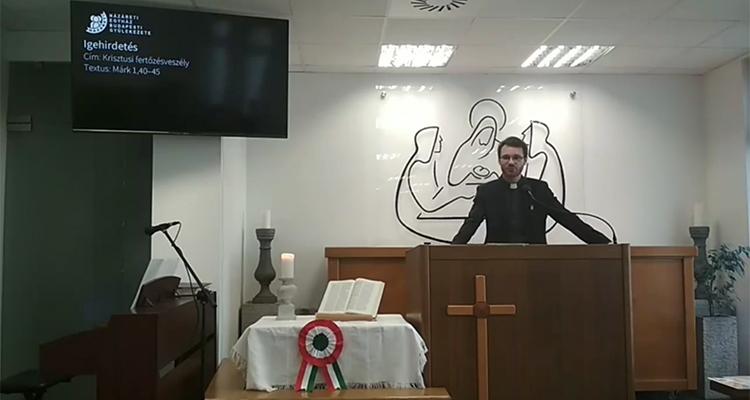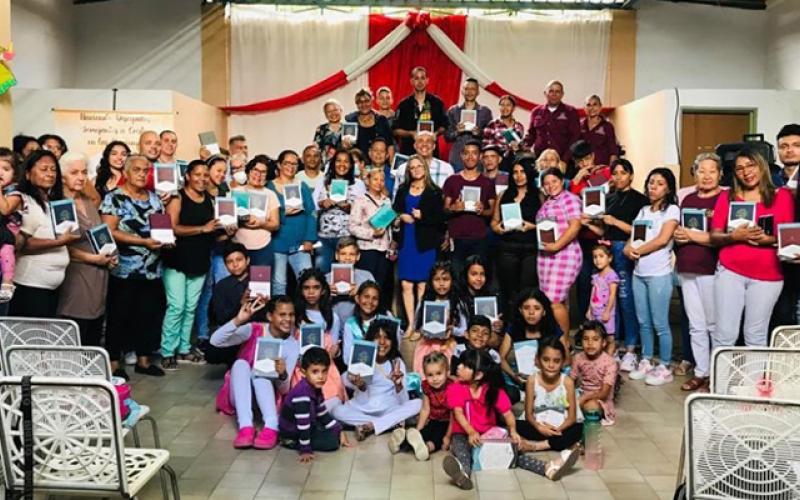
Churches in Hungary find success in streaming services

The Church of the Nazarene in Hungary has utilized Facebook Live to reach its congregations. In Budapest, the church’s first live-streamed service on 15 March attracted more than 2,000 viewers.
Feedback showed that people from other denominations were watching the service, as well as relatives of church members who live in other cities.
At the time, the church’s live service was unique among a number of other churches who had pre-recorded services and posted them, which contributed to the sharply increased number of viewers over its usual in-person attendance.
“As soon as the Hungarian government declared a nationwide state of emergency on the 11th of March, we responded immediately,” said Maria Tulipan Gusztin, rector of EuNC. “On the first Sunday after the declaration, only one of our churches went livestreaming on the district. By now, all our congregations and other denominations have started to livestream in various ways.
“The sermon was closely connected to the pandemic. The preacher talked about how Christians should pass on the gospel as a virus is passed from one to another.”
Total viewership for the following Sunday services has now come much closer to the congregation’s average Sunday worship, as other churches have been able to start livestreaming their services for their members, and because participation is now spread across the church’s other weekly activities that have also moved online, Gusztin explained.
People met via Internet from 9 a.m. to 5 p.m. for the 28 March district assembly, including morning devotions, ministry reports, workshops, and closing worship. The only thing missing was the food.
One group was able to continue their Friday night prayer meeting together.
“A 72-year-old forest engineer uses Skype and helped others, and some joined in via cell phone through someone via Skype,” Gusztin said. “Actually, it worked very well. There was humour, encouragement, Scripture shared, and prayer.”
Adapted from story originally posted by Eurasia Region. To read the full story about how Nazarenes from the Eurasia Region are responding to COVID-19, click here.




